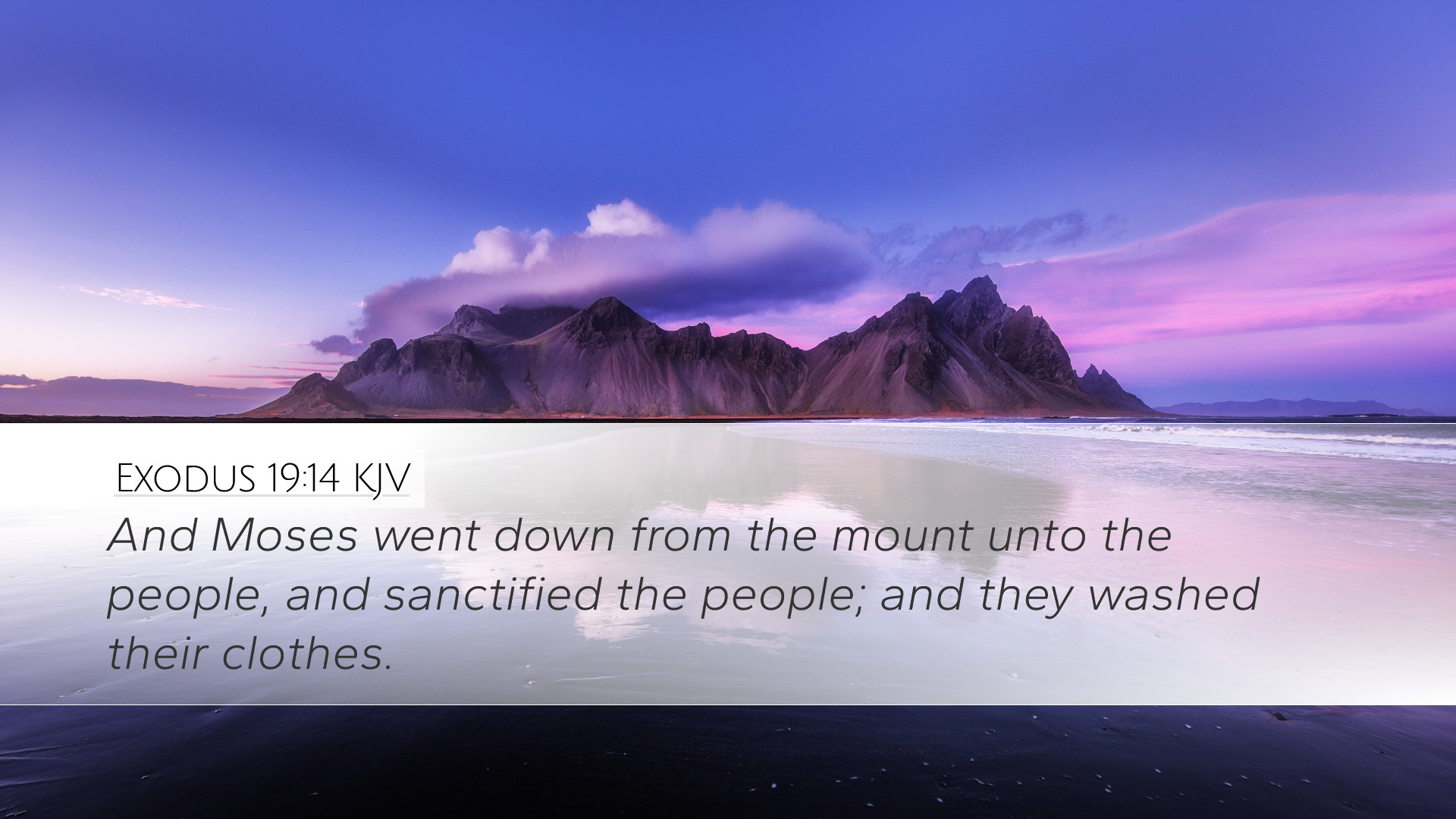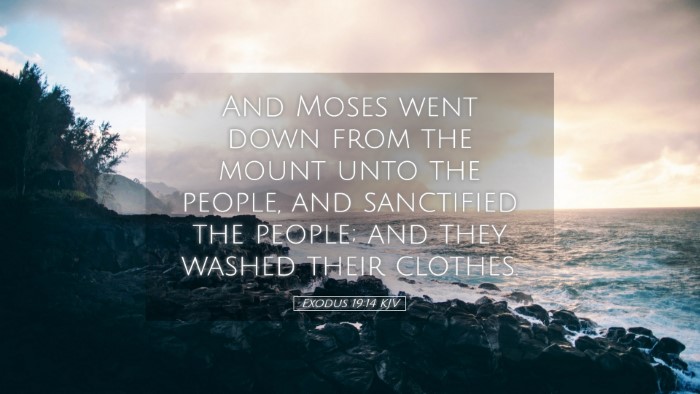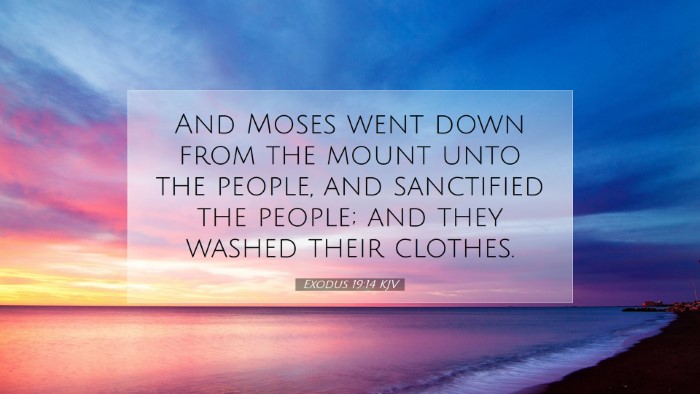Commentary on Exodus 19:14
Exodus 19:14 (KJV): “And Moses went down from the mount unto the people, and sanctified the people; and they washed their clothes.”
Introduction
The verse Exodus 19:14 serves as a pivotal moment in the unfolding narrative of the Israelites as they prepare to receive God's covenant. It exemplifies the themes of holiness, preparation, and the sanctifying work of God among His people. In this commentary, we will delve into the insights provided by renowned Bible scholars, examining the verse's theological implications, practical applications, and the broader context within which it resides.
Contextual Overview
This verse occurs in the context of God's preparation of Israel for the giving of the Law at Sinai. The ascension of Moses into the mountain, followed by his descent, symbolizes a critical transition from bondage in Egypt to covenant relationship with God. The verses preceding Exodus 19:14 highlight God's desire for His people to be a holy nation (Exodus 19:6), which sets the stage for understanding the importance of their consecration.
The Act of Sanctification
Moses’ descent from the mountain signifies a tangible moment where the divine command translates into practical action. According to Matthew Henry, “Moses is seen as the mediator, not only between God and man but also between the Law and the people,” establishing a pattern of leadership that is echoed throughout the Bible.
Albert Barnes underscores the communal aspect of this sanctification process, noting that “consecration to God demands a preparation of heart and life, and this was conveyed through the tangible act of washing.” Hence, washing their garments represents an outward sign of the inner purity that God expects from His elect, reinforcing the requirement of holiness that permeates the Old Testament and continues into New Testament ethics.
Symbolism of Washing
Washing their clothes symbolizes a deeper spiritual cleansing. As Adam Clarke remarks, “The act of washing is representative of spiritual preparation, indicating the need for purity before entering into a covenant relationship with the Holy One.” This idea resonates deeply with the biblical concept of cleansing, pointing to future rites such as baptism in the New Covenant, where a similar theme of purification is present.
Theological Implications
- Holiness of God: The call to sanctification highlights the character of God as holy. Understanding God's holiness is foundational to appreciating the gravity of the covenant.
- Covenantal Relationships: The act of sanctifying the people underscores the seriousness with which God views His covenant with Israel. It was not a mere contract but a profound relational covenant.
- Preparation for Divine Encounter: The act of washing serves as a preparatory step for the divine revelation that follows; it emphasizes the need to approach God with reverence and purity.
Practical Applications
The implications of Exodus 19:14 extend beyond the context of ancient Israel. Pastors and theologians can draw valuable lessons for modern congregations:
- Encouragement in Personal Holiness: The calling to wash and sanctify is a legitimate example for believers to pursue personal holiness and spiritual cleanliness in their lives.
- Importance of Community Preparation: As Moses sanctified the people collectively, leaders today are reminded of their role in guiding their congregations towards spiritual readiness.
- Reflection on Worship Practices: Consideration of how congregational practices reflect the call for holiness might lead to new expressions of worship that honor God's holiness.
Conclusion
In summary, Exodus 19:14 is a rich verse that encapsulates themes of holiness, preparation, and the necessity of a cleansed life in response to God’s covenant promises. The insights drawn from the public domain commentaries of Matthew Henry, Albert Barnes, and Adam Clarke enhance our understanding of this verse and its application. As believers reflect on the necessity for sanctification, they are called to engage with God with reverence and holiness, an enduring truth that spans both the Old and New Testaments.


